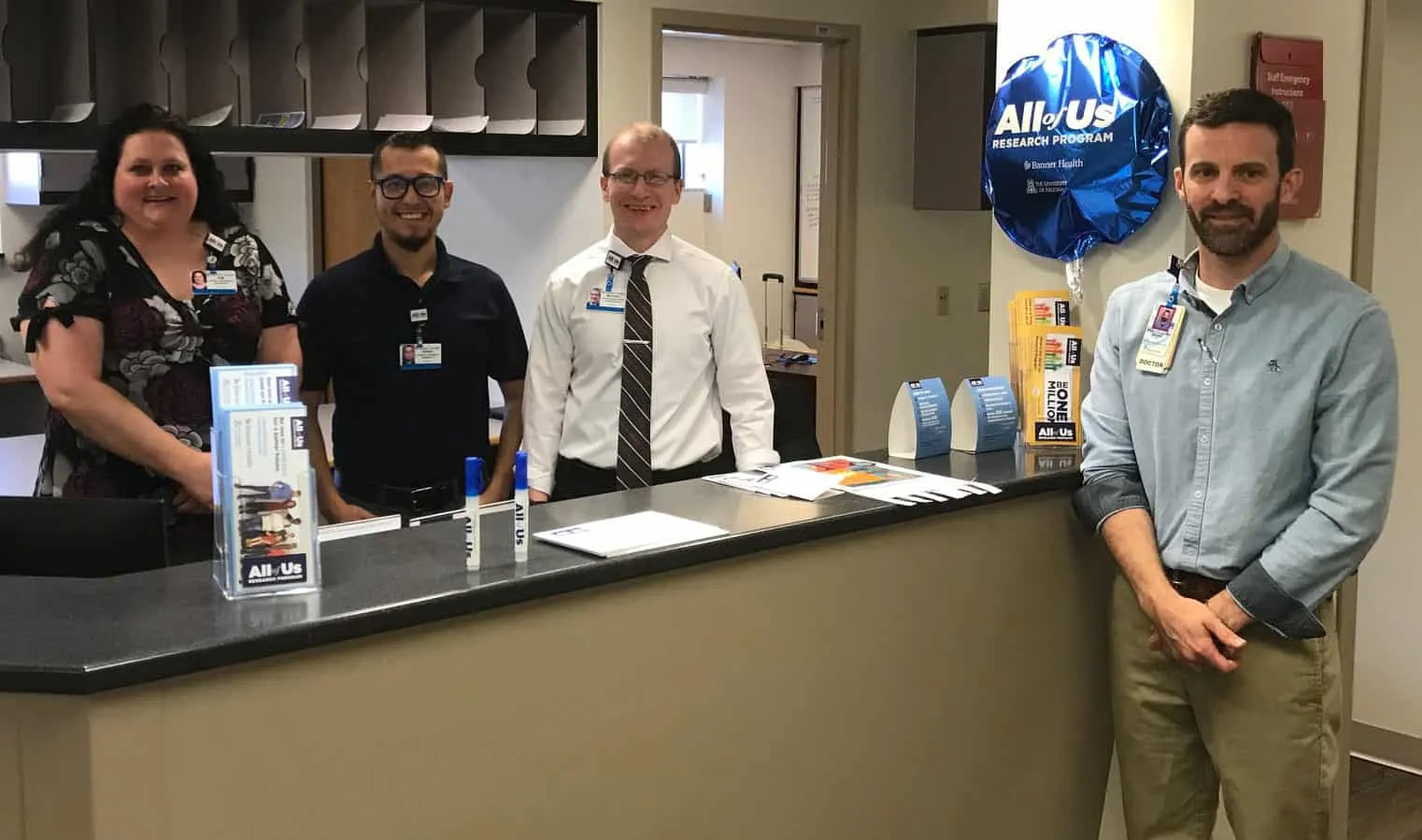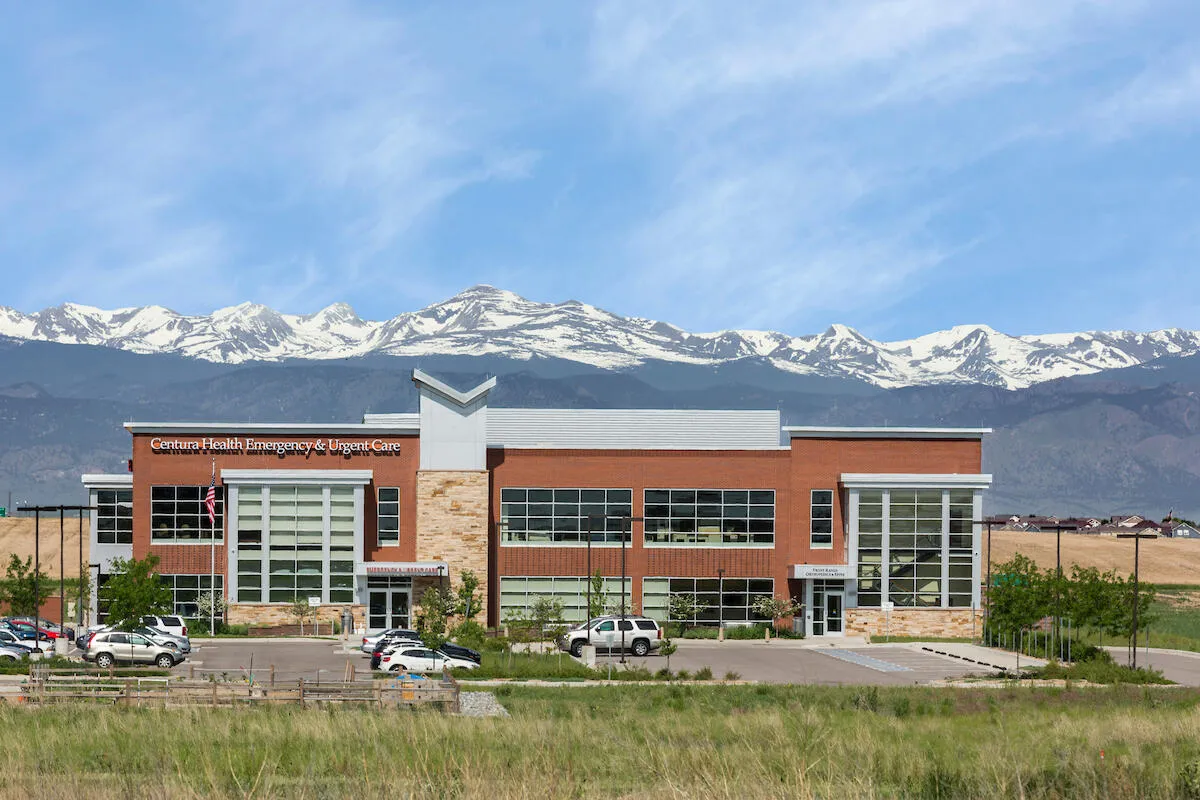NoCo data part of race-related COVID study

 GREELEY — COVID-19 hits people of color harder than what might be expected based upon demographic breakdowns. A program begun a year ago in Northern Colorado is already helping medical researchers figure out why.
GREELEY — COVID-19 hits people of color harder than what might be expected based upon demographic breakdowns. A program begun a year ago in Northern Colorado is already helping medical researchers figure out why.
The program, called All of Us, is a National Institute of Health program to gather medical information from a wide swath of the population so that medical researchers have ready access to data as they undertake studies to improve health of Americans. Banner Health has been participating for about three years in the Phoenix market where it has its headquarters. North Colorado Medical Center in Greeley joined the effort in 2019.
Centers for Disease Control data, which gathered the information from the 50 states, reported that COVID has affected Hispanic/Latino populations at about twice the rate that would be expected based upon the Hispanic share of the population. Incidence of the disease among the Black population is nearly 70% higher than what would otherwise be expected.
SPONSORED CONTENT
All of Us is part of a “precision medicine” effort that attempts to gather information so that medical health providers can determine what treatments work best for specific populations, which could include racial, gender, income or even geographic differences.
Dr. Michael Bradfield, a family physician at NCMC, heads the program in Northern Colorado. He said All of Us on a national basis has already gathered enough information to give researchers a jump start on determining why COVID affects populations differently. So far, 350,000 people have contributed their health data to the program nationwide; in Northern Colorado, more than 500 people had signed up and submitted data prior to the onset of COVID, he said.
The NIH paused the program when the coronavirus pandemic began but has been tapping the data.
Bradfield said three national research studies are underway using the All of Us data.
“The first is antibody testing,” Bradfield said. “Using samples from 10,000 random participants, [researchers] are trying to determine when this actually started in his country and where,” he said. Bradfield said it is possible that the disease had a much earlier start in the U.S. than previously thought, and the antibody data from All of Us will help to determine that. Antibodies show past infections, he said.
The second project involves a monthly survey of All of Us participants. Each month, 350,000 surveys are sent out to determine how the disease is affecting communities. The survey looks at physical and mental wellbeing of participants and their communities.
And the third project, Bradfield said, is aligning All of Us data with COVID incident data to see if there are reasons some victims were sicker than others and why.
“We weren’t planning to ramp up something like that yet but COVID made that essential,” Bradfield said. The data has been “really accessible to researchers. It hit at a nice time even though we weren’t quite ready,” he said.
Because All of Us targeted “historically under-represented communities,” it has opened up new opportunities to determine why the impact was different for different populations, he said. Results from the research are not yet available.
All of Us data is also being used in researching effects of other diseases on sample populations with the first studies to produce results “within this calendar year,” he said.
While medical science and treatments have been criticized in recent years for overlooking some populations while focusing on white, male, urban, and relatively affluent populations, the All of Us data does more than just provide raw information.
It’s accessibility empowers researchers from minority communities, too, Bradfield said.
“Sometimes research has nothing to do with the people [doing the research] but has to do with funding,” he said. Researchers within some communities don’t have the resources to access or gather the data. All of Us changes that by making the data widely available.
Bradfield said that while the NIH paused the program because of COVID, it will restart the process of recruiting people to participate soon. On a national level, the goal is to return results from research before the end of the year and to begin enrolling participants again.
In Northern Colorado, the program will hire three additional employees within a few weeks and start to expand the program outside of Weld County to Loveland and Fort Collins, Bradfield said.
 GREELEY — COVID-19 hits people of color harder than what might be expected based upon demographic breakdowns. A program begun a year ago in Northern Colorado is already helping medical researchers figure out why.
GREELEY — COVID-19 hits people of color harder than what might be expected based upon demographic breakdowns. A program begun a year ago in Northern Colorado is already helping medical researchers figure out why.
The program, called All of Us, is a National Institute of Health program to gather medical information from a wide swath of the population so that medical researchers have ready access to data as they undertake studies to improve health of Americans. Banner Health has been participating for about three years in the Phoenix market…




